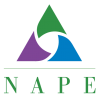Review the Theory and Evidence.
Recommendations and Strategies*
- Kindle and sustain interest in math. Kindling and sustaining interest in math, science, and technology fields seems to be as important as achievement. Intervene early to make math more interesting and relevant. “Interventions need to be designed that focus not on the academic achievement of women but in how to make math- and science-related occupation[s] more interesting for young, high achieving [sic] women.”
- Make mathematics and science a requirement. Requiring mathematics and science rather than offering them as electives can increase participation in STEM fields. Pre-college programs incorporating hands-on activities, role models, internships, and field trips tend to increase self-confidence and interest in STEM courses and careers.
- Make other programs available. Participation in intervention programs such as after-school, weekend programs, or summer camps that provide more conceptual and connected instructional strategies often results in increased levels of comfort with mathematics, resulting in an improvement in confidence, motivation, engagement, and achievement. Young women who participated in a two-week Camp Reach engineering program were more likely to enroll in elective math and science courses.
- Invite, involve, and educate parents. Emphasize the important role that parents play in influencing their children’s career decisions. A survey of more than 1500 college, high school, and middle school students indicated that parental expectations to take more classes and choose a STEM career were the top perceived supports for women in STEM careers. Seventy-eight percent of high school students in a Ferris State University study reported their parents to be the most influential adults in their career decision-making process.
[pullquote align=”left”]Participation and success in math, science and technology courses, especially those taught in an equitable and “hands-on” manner, increase the likelihood of women participating in nontraditional careers.[/pullquote]
Effective Practices and Resources
- Mathematics Mentors for Rural Girls served a rural community with few female professional role models by offering a camp with female mathematics and science professionals who served as mentors. Multidisciplinary Skill-based Summer Program and Math Computer Tutors offered to high school girls a residential summer project that was skill-oriented and multidisciplinary and assisted advocates in ensuring that women and girls were prepared to make a STEM occupational choice. Summaries are available for numerous other similar projects in New Formulas for America’s Workforce 2.
- National Girls Collaborative Project After School Programs have an invaluable impact on young people, especially young women. National Girls Collaborative Project assists programs in collaborating to strengthen offerings to young women to invite them into STEM careers.
- Making Science Cool: New Videos about Afterschool Hands-on Activities The After-School Corporation recently released a series of short videos that make the case for doing science after school. The videos are each 1-2 minutes in length, and show kids and their group leaders engaging in lively hands-on science activities in after-school programs.
- National Institute for Women in Trades, Technology & Science comprehensive center provides educational materials and professional development around the subject of non-traditional careers for women, including a poster series, “Think Women Can’t Be…..”
- SciGirls is a project designed to help girls become interested in science. Local Children’s Museums can become SciGirls chapters. a new PBS KIDS GO! series targeting tween girls, showcases bright, curious real girls putting science and engineering to work, as they answer real-life questions and make unexpected discoveries in the world around them.
- Mixing In Math provides a bank of resources adding math to out-of-school time for ages 5-12.
- Kiss My Math Danica McKellar is not only an actress on the The West Wing, but is also an internationally-recognized mathematician and advocate for math education.
- TechREACH after school clubs and summer programs help schools involve underrepresented minority and low-income middle school students.
- Gender and Technology in Education: A Research Review contains editorial comments by Jo Sanders, noted researcher in gender and education.
- Since 1987, Chicago Women in Trades has provided pre-apprenticeship training through its Technical Opportunities Program, which has trained more than 1200 women. Approximately 600 of them have entered into trades apprenticeships or nontraditional careers.
- Focus Your Future Toolkit provides the tools you need to hold your own reception with girls and their parents/guardians to increase awareness of engineering as a career field.
- Gotta Have It From the National Center for Women in Technology features a select set of high-quality posters, computing and careers information, digital media and more, the resource kit builds awareness and inspires interest in computing.
- STEM Equity Pipeline Project provides resources for professional development, including online links to equity resources on the web, the 5-Step Process, state-level Train-the-Trainer, and monthly webinars on equity topics.
- Boston’s Museum of Science Computer Clubhouse provides a creative and safe after-school learning environment where young people from under-served communities work with adult mentors to explore their own ideas, develop skills, and build confidence in themselves through the use of technology.
- Edutopia’s Home-to-School Connections Guide is available for teachers to help parents be more involved in their children’s education. Suzie Boss writes that some of the tips in the Guide include using social media to connect with parents, as well as traditional methods, such as encouraging families to read together.

